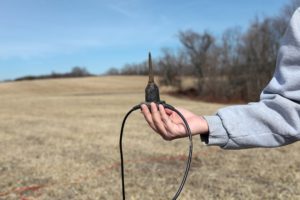All Categories
Featured
Table of Contents
What Do Geoscientists And Hydrologists Do? in The Vines WA 2021

Other possible geophysicist majors that aren't geophysics or geoscience consist of: Atmospheric sciences and meteorology Chemical and physical oceanography Earth science Environmental science Hydrology and water resources science Products science By making any geophysicist degree, and by taking the needed geology courses, you must certify for an entry-level position as a geoscientist or geophysicist.
Eventually, trainees must find out: a branch of geology that looks at the different aspects of minerals, including chemical structure, internal crystal structure, and physical properties. the research study of rocks and the procedures and conditions that form and change them over time. There are a couple of subdivisions in this branch of geology, including igneous, metamorphic, and sedimentary rocks.

This field analyzes structural rock functions such as cleavage, faults, joints, and small folds. They should also find out the computer system skills needed to: evaluate information create digital models and maps run geoscientists' software Students need to likewise make the most of all chances to acquire real-world experience. Aspiring geophysicists should expect to hang out learning: in the class in the field in laboratories Clearly, skills taught in the class are very crucial for aiming geophysicists.
Geophysicist Salary in Perth Oz 2023
For example, geoscientists spend a great deal of their time outside when working in the field, so they should have "outside abilities" like camping and operating boats, airplane, and other lorries. Due to the fact that they spend a lot time in remote places, it's necessary that geophysicists likewise have the physical endurance to bring essential devices on their hikes to places of study.
The task provides: a high typical and top profits a high rate of personal satisfaction amongst geophysicists low work stress positive job outlook Additional details on profits capacity and job outlook is detailed listed below. For trainees looking to land an entry-level role as a geoscientist or geophysicist, it takes four years, or the time required to complete a bachelor's degree in geophysics or an associated discipline.
Some research study positions in geophysics need doctoral degrees. Likewise, if you plan to teach at a college or university, you should make a Ph - Where Can A Geophysicist Work Other Than The Oil Industry? in Hocking WA 2020. D. in geophysics or an associated field. The time it requires to make a Ph. D. differs by organization and program, but it generally takes four to 6 years beyond the bachelor's degree.
Geophysical Survey - Suffolk Heritage Explorer in White Gum Valley Aus 2022
Most companies need candidates to have a bachelor's degree in geophysics or a closely related discipline for all entry-level positions. As an outcome, there's no method around the degree requirements for becoming a geophysicist.
Presently, 31 states need licensing for geologists, although licensing is not always required, particularly for entry-level work. The states that do issue licenses use the Basics of Geology Exam (FGE), which is administered through the National Association of State Boards of Geology (ASBOG). Now that you know which degree for geophysicist tasks you require, you'll require to land a job, and it is essential to find out just how much money you can make in this profession.
According to BLS, the typical annual wage for geoscientists is $93,580. The most affordable 10% of earners earn less than $52,000, while the greatest 10% earn more than $201,000 yearly. Salaries vary by industry type and geographic location. According to BLS, specific markets offer higher earnings for geoscientists, and sometimes, they provide higher-than-average revenues.
Consumer Guide To Geological And Geophysical Services ... in Carine Oz 2022
In fact, mining, quarrying, and oil and gas extraction offers over $32,000 more each year than the average yearly wage for this profession. The federal government, too, offers over $10,000 more in earnings than the nationwide average for geoscientists. In addition to industry type, geographical place can significantly affect profits for this profession.

The top-paying states and their yearly mean earnings, according to the BLS, include: Texas $166,720 Oklahoma $149,630 Pennsylvania $120,590 Hawaii $120,130 Colorado $107,260 These five top-paying states use much greater wages than the average for this occupation. In truth, wages for geoscientists in Texas are over $73,000 greater than the national average.
It must come as not a surprise that many of these high-paying locations remain in Texas and Oklahoma, but some are discovered in California, Louisiana, and Colorado. The top 10 highest-paying city locations for geoscientists are: Houston-The Woodlands-Sugar Land, Texas: $188,400 Tulsa, Oklahoma: $186,490 Midland, Texas: $167,040 Odessa, Texas: $147,080 Oklahoma City, Oklahoma: $145,350 Bakersfield, California: $130,080 Urban Honolulu, Hawaii: $124,470 New Orleans-Metairie, Louisiana: $121,030 Washington-Arlington-Alexandria, DC, VA, MD, WV: $120,180 Denver-Aurora-Lakewood, Colorado: $116,910 For some geoscientists and geophysicists, residing in a metro city is not as attractive as residing in a smaller sized community.
Latest Posts
Geophysical Survey Definition in Bayswater Oz 2023
Geophysical Surveys: Definition & Methods in Ardross Australia 2020
What Is Geophysics And What Do Geophysicists Do? in Maddington WA 2023